Housing Support
Medical Certificates
Our GMC-registered doctors provide fast, hassle-free documentation for those requiring housing assistance due to medical conditions. Delivered via email, helping you secure the support you need, quickly and reliably.
LET'S GET STARTED


+
Years of experience
on Google Reviews
+
Patients served
+
Healthcare providers on staff
How it Works

01
Complete an online health consultation
No appointment required – simply complete a medical consultation form and upload a 30 second video of your symptoms or other medical evidence. Your e-consultation will then be sent directly to a GP for review.

02
Doctor Reviews Case & Evidence
One of our FCDO and GMC registered GPs will review and validate the submitted medical evidence and health information.

03
Receive your certificate
Receive your medical certificate or doctor's note as soon as the same day or next working day, straight to your inbox.
LET'S GET STARTED
ABOUT US
ProHealth is a team of experienced medical professional
Dedicated to providing top-quality healthcare services. We believe in a holistic approach to healthcare that focuses on treating the whole person, not just the illness or symptoms.

BLOG POSTS
Latest Update
Getting a Housing Support Medical Letter

Finding the right house when you have a health condition can be tough. The housing support medical letter plays a key role here. This blog will show you how to get one and use it for your benefit.
Keep reading, and let’s learn together.
Key Takeaways
- A Housing Support Medical Letter confirms a health condition impacts a person’s welfare and housing requirements. Medical professionals author these documents to assist in securing accommodation appropriate for medical needs.
- Such letters are crucial for individuals with disabilities or whose health is deteriorating because of their current homes. These can expedite council housing requests and illustrate the necessity for specialised living arrangements.
- Housing authorities rely on these documents as evidence while determining fitting housing options. This process aids in promptly addressing the needs of those in critical situations, ensuring timely and suitable support.
- To acquire this letter, reach out to your GP or health service provider with essential items such as identification, medical history, and proof of residency. They will assist in constructing a detailed argument to strengthen your housing claim.
- Support is also offered by bodies like Shelter and Citizens Advice. These institutions provide assistance on how to procure these letters and manage housing claims related to health conditions.
Understanding Housing Support Medical Letters

Housing support medical letters provide crucial documentation for individuals with health conditions who require suitable housing. These letters are essential to state the impact of a person’s medical condition on their housing needs and well-being.
What is a Housing Support Medical Letter?
A Housing Support Medical Letter is a vital document that proves an individual’s health issue and the way their living condition affects their well-being. Doctors or healthcare providers often write these letters to explain why someone needs special housing due to their medical conditions.
The letter confirms the person’s disability or health problem and shows how it makes daily life harder because of where they live. This evidence is crucial for those applying for council homes or needing priority in housing due to health reasons.
Councils sometimes get this information directly by talking to the person’s GP, so a letter might not always be needed if you’re asking the Council for help. Yet, many still turn to GMC-registered UK doctors to get a supporting letter quickly, which can be ready on the same day they ask for it.
These letters are especially important when damp conditions at home could make health problems worse or when a social worker suggests that moving could improve someone’s mental health.
A quick doctor’s note can open doors to better living situations for those with serious health issues.
Understanding who benefits from these letters helps clarify their role in community care and public health efforts.
Who needs a Housing Support Medical Letter?
Individuals with disabilities or health conditions requiring special housing support need a Housing Support Medical Letter. This letter is crucial for those whose current living situation worsens their health.
For example, someone with severe asthma might need to live in a home without dampness. The Housing Executive states that staff will not ask applicants to get this letter from their GP, as medical evidence is essential for the application process.
GP practices often receive requests to provide letters supporting housing applications due to health issues. These letters serve as proof of the individual’s condition and its impact on their daily life, making them key documents in securing appropriate housing through local authorities.
Next, we discuss the importance of these letters and how they can significantly affect one’s health and wellbeing.
The Importance of Housing Support Medical Letters
Housing Support Medical Letters are crucial for individuals’ health and legal status, impacting their well-being and housing stability. These letters play a vital role in supporting individuals by underpinning their need for suitable housing within the framework of legal rights and social responsibilities.
Impact on Health and Wellbeing
A housing support medical letter plays a crucial role in linking an individual’s living conditions with their health. This document, often produced on the same day by healthcare professionals, outlines how one’s disability or condition worsens due to their current housing situation.
It becomes evident that without suitable accommodation, individuals face significant challenges in managing their health effectively. Poor housing can lead to deteriorations in both physical and mental well-being, underlining the necessity for timely support.
The right home environment is vital for one’s health.
GPs and other healthcare providers frequently encounter requests from patients needing these letters as part of applications for more suitable living spaces. These documents confirm the patient’s health status and emphasise the connection between inadequate housing and adverse effects on daily life.
Through online medical forms or a doctor’s letter included within a person’s summary care record, essential evidence is provided to local authorities. This approach ensures that those in dire need receive prioritised consideration for their applications, directly impacting their overall quality of life by potentially offering them a stable and healthier living environment.
Legal and Social Implications
The impact of housing on health and wellbeing directly feeds into its legal and social ramifications. Councils have a duty to provide emergency homes for people in immediate need, which stands as a critical legal framework supporting individuals with a housing support medical letter.
This document proves the person’s condition or disability and shows how their current living situation worsens their health.
On the social side, these letters prompt councils to act by laying bare the urgent needs of vulnerable citizens. It ensures that those struggling are not just numbers but receive attention based on concrete evidence—like that from healthcare providers or GPs.
The Housing Executive has made clear that its staff should steer away from asking applicants to get support letters from their doctors. Instead, they require direct medical proof of an individual’s condition affecting their housing needs.
This approach streamlines processes for those applying for council homes due to health reasons, eliminating unnecessary steps like getting a GP’s letter since the Council will independently verify details with the healthcare provider involved.
How to Obtain a Housing Support Medical Letter
To obtain a Housing Support Medical Letter, individuals should first contact their GP or healthcare provider. They will need to provide the necessary documentation and follow the process outlined by their healthcare professional for obtaining the letter.
Contacting Your GP or Healthcare Provider
If you need a housing support medical letter, your first step is to reach out to your general practitioner (GP) or healthcare provider. GPs often get requests for these letters to support housing applications.
They know this process well and can help you gather the necessary medical evidence. This evidence shows how your health condition affects your housing needs. The Housing Executive advises against asking patients to get these letters themselves.
But if needed, a template is available that outlines why someone might be in urgent need of housing due to vulnerability.
Once you have made contact with your GP, they will guide you on what documentation you must provide. This helps them create an accurate letter that reflects your situation. Your GP might also offer advice on other support organisations which can assist in your application process.
Required Documentation for a Housing Support Medical Letter
After reaching out to your GP or healthcare provider, the next step involves gathering the necessary documentation for a Housing Support Medical Letter. This letter plays a crucial role in confirming an individual’s health condition and how it affects their need for housing.
Here’s what you need to prepare:
- Personal identification: This includes a copy of your passport, driving licence, or birth certificate. It proves who you are.
- Proof of address: You might use a utility bill or a bank statement that shows where you live right now.
- Medical records: These should detail your disability or health condition. The records must clearly show how your living situation impacts your health.
- A detailed personal statement: Here, you explain in your own words why you need different housing because of your health issues. Make sure this letter tells your story clearly.
- Any existing support letters: If you have them, include letters from social workers or other healthcare professionals that support your claim.
- Council communication: Include any previous correspondence with the council regarding your housing situation.
- Template form filled out (if available): Some councils provide a specific form to help doctors write these letters effectively.
Together, these documents form the backbone of your application for housing support due to medical reasons. They offer clear evidence of both your condition and its impact on your daily life, fulfilling the council’s requirements for considering an adjustment to your living arrangements.
The Process of Obtaining a Letter
Gathering the needed documents for a housing support medical letter is the first step. Next comes obtaining the letter itself. Here’s how it usually goes:
- Individuals must contact their GP or healthcare provider. Patients often request these letters to support their housing needs.
- The patient explains why they need the letter. They discuss their disability or condition and how it affects their living situation.
- The healthcare provider might use a template for the letter. This template highlights why someone is in urgent need of housing due to health reasons.
- There’s no need to get a letter from the GP if applying for a council house because of health issues. The council will reach out to the GP directly and confidentially.
- Sometimes, the Housing Executive advises that its staff should not ask people to get letters from their GPs themselves.
- If required, provide any additional documentation that supports your application. This may include details of your condition and how it impacts your day-to-day life.
- The healthcare provider confirms the individual’s disability or condition in writing, including how their current housing affects their health conditions negatively.
- Individuals can receive this confirmation on the same day they ask for it, making it easier to proceed with housing applications quickly.
- After obtaining the document, you submit it along with your housing application to your local authority or housing association.
This process aims at creating strong evidence about an individual’s need for suitable accommodation based on health reasons, which then helps them in securing appropriate housing solutions faster and more efficiently.
Contents of a Housing Support Medical Letter
A Housing Support Medical Letter should include all vital medical information, diagnosis, and treatment plans. It should also clearly state the impact of the individual’s health condition on their housing needs.
Essential Information to Include
The Housing Support Medical Letter should encompass the individual’s personal details such as their name, address and date of birth. It should also delineate a distinct explanation of their health condition or disability and its influence on their housing necessities.
Furthermore, it must delineate any particular assistance or modifications necessary in their accommodation. Moreover, the communication must originate from an authorised healthcare professional and signify their qualifications, including GMC registration number for doctors or HCPC registration number for social workers or occupational therapists.
Moreover, the letter ought to mention that it is being furnished to bolster an application for housing on health grounds.
Example of a Housing Support Medical Letter
An example of a housing support medical letter generally includes the individual’s diagnosis, details about their condition, and how it affects their ability to live in their current housing situation.
The letter may also outline any specific needs for suitable accommodation and the impact on the person’s health and wellbeing. For instance, it might include information on how stairs or other physical barriers exacerbate the individual’s health issues.
This type of letter aims to provide clear evidence supporting the necessity for improved housing conditions due to health reasons. Moreover, it underlines why standard accommodation may not be suitable for an individual’s specific medical requirements whilst showcasing how improving said accommodations could significantly benefit their overall well-being.
This further supports any application for priority housing.
Moving forward with applying this process can often seem intricate; yet, securing a comprehensive medical document is pivotal when seeking assistance through various support organisations or local authorities.
It is critical to gather all necessary records that are relevant to one’s specific case before commencing this journey towards accessing appropriate living conditions based on healthcare needs.
Next Topic: “Using the Housing Support Medical Letter
Using the Housing Support Medical Letter
Using the Housing Support Medical Letter can significantly boost your housing applications, providing crucial medical evidence to support your need for suitable accommodation. Submitting this document to local housing authorities can greatly enhance the chances of securing appropriate housing that aligns with your healthcare needs.
Submitting to Local Housing Authorities
Individuals needing housing support due to health reasons must submit their housing support medical letter to local housing authorities. This vital document provides evidence of the impact of their health condition on their housing needs and confirms their vulnerability and priority status for suitable accommodation.
Local housing authorities rely on this formal medical confirmation when assessing an individual’s eligibility for appropriate housing solutions.
The process of submitting a housing support medical letter involves presenting the comprehensive details mentioned in the letter to local housing authorities, enabling them to understand the specific health-related requirements underlying the urgent need for suitable accommodation.
It’s crucial that individuals are aware of how this documentation serves as an essential aspect in obtaining necessary tailored assistance from local Housing Authorities, ensuring they receive needed support promptly.
The submission empowers those seeking help by providing crucial avenues for understanding and addressing vulnerabilities related to healthcare requirements and securing appropriate living conditions compliant with their health concerns.
As such, it underpins a significant step towards achieving improved well-being.
Moving forward in the blog, readers will discover further insights into council duties concerning emergency housing provision along with legal rights associated with having a Housing Support Medical Letter.
How the Letter Supports Housing Applications
The housing support medical letter plays a crucial role in supporting housing applications for individuals facing health challenges. This document serves as concrete evidence of an individual’s health condition and its impact on their housing needs, ensuring that the authorities have clear insight into the unique circumstances.
By providing specific details about how the disability or condition affects daily life and wellbeing within their current housing situation, this letter offers vital support to individuals seeking priority consideration for suitable housing arrangements due to medical reasons.
Moreover, this letter aids local councils in understanding the urgency and necessity of appropriate accommodation for those with pressing medical requirements. It supports the need for tailored housing solutions by shedding light on how an individual’s health is directly linked to their living conditions, enabling effective decision-making towards addressing these critical requirements promptly and comprehensively.
Council and Legal Obligations
Councils have a legal duty to provide emergency housing for individuals with Housing Support Medical Letters. Furthermore, those with such letters have specific legal rights that support their housing needs.
Council’s Duty to Provide Emergency Housing
The council has a legal responsibility to provide emergency housing to individuals in need. This duty arises when an individual is homeless or at risk of becoming homeless, especially if they have specific health needs.
In such situations, the council must take action to ensure that suitable accommodation is provided promptly. For instance, if a person with a disability or medical condition faces homelessness due to their health situation, the council must act swiftly and effectively.
This ensures that vulnerable individuals receive necessary support without unnecessary delay in finding appropriate accommodation.
Moving on to – Legal Rights for Individuals with a Housing Support Medical Letter…
Legal Rights for Individuals with a Housing Support Medical Letter
Individuals with a Housing Support Medical Letter hold legal rights that safeguard their housing needs. This letter serves as crucial evidence of their health condition and its impact on housing requirements.
It forms the legal and social foundations, ensuring they receive appropriate assistance and consideration.
The Council has a duty to provide emergency housing for individuals with a Housing Support Medical Letter when necessary. Additionally, these individuals are entitled to fair treatment in the application process for council homes due to their medical circumstances.
Their legal rights are safeguarded through the provision of documentation confirming their disability or condition and how it affects their daily life, creating a customised approach towards supporting them in securing suitable accommodation.
Additional Support and Resources
Looking for additional support with housing medical letters? Receive customised guidance and assistance from local community health centres or contact specialised housing support organisations in your area.
Where to Get Further Help
For extra assistance in obtaining a housing support medical letter, individuals can contact local support organisations such as Shelter and Citizens Advice for guidance through the process.
These organisations offer personalised assistance specifically for managing the challenges of acquiring a housing support medical letter and provide detailed one-on-one support. Moreover, individuals can also seek more information and advice from healthcare professionals at their GP practice, who have direct experience in supporting patients with documentation required for housing needs.
Support Organisations and Links
- Citizens Advice: It provides free, impartial advice on housing-related issues, including assistance for individuals seeking housing due to health reasons.
- Shelter: This charity offers practical advice and support to help people find suitable housing, advocating for those facing housing needs caused by health concerns.
- Mind: As a mental health charity, Mind can provide guidance and resources for individuals experiencing mental health issues affecting their housing situation.
- Disability Rights UK: This organisation offers information and support for disabled individuals seeking suitable housing accommodations due to their disabilities.
- Age UK: For older individuals facing housing challenges due to health issues, Age UK can provide valuable assistance and resources tailored to their specific needs.
- Homeless Link: This national membership charity works with organisations providing accommodation and support across England, offering a range of services catering to various housing-related needs driven by health concerns.
- NHS England: The official website offers essential information about accessing healthcare services, which can be crucial for individuals in need of medical letters supporting their housing applications.
- Carers UK: For those caring for someone with health-related accommodation needs, Carers UK provides practical and emotional support to help address the complexities of obtaining suitable housing support.
These organisations offer a wealth of resources, information, and support for individuals seeking suitable housing accommodations due to health-related challenges.
Conclusion
The housing support medical letter plays a crucial role in advocating for individuals with health-related housing needs. This document serves as vital evidence of their condition and its impact on their housing requirements.
By providing a comprehensive understanding of the individual’s health situation, the letter supports them in securing suitable accommodation. It empowers individuals to manage the intricacies of housing applications by supporting their unique healthcare needs, enabling a personalised approach towards obtaining necessary support.
FAQs
Got questions about Housing Support Medical Letters? Find answers to common queries and tips for a smooth application process. Read more to get all the info you need!
Common Questions About Housing Support Medical Letters
Many individuals have queries about housing support medical letters. These documents provide evidence of an individual’s health condition and its impact on their housing needs. People often ponder on who requires a housing support medical letter, where to acquire one, what details should be incorporated in the letter, and how to utilise it when applying for local authority housing.
Furthermore, they are interested in their legal entitlements when using this document and look for additional assistance or guidance in obtaining the letter. Such questions surface regularly due to the significance of these letters when seeking housing support based on health grounds.
Tips for a Smooth Application Process
When it comes to addressing the application process for housing support medical letters, individuals should make sure they provide all required documentation, including evidence of their health condition and its impact on their housing needs.
It is crucial to promptly contact their GP or healthcare provider to initiate the process of obtaining the letter. They should also ensure that the contents of the letter include necessary information about their disability or condition and its effects on their daily health.
Moreover, when submitting the housing support medical letter to local housing authorities, applicants need to understand how this document bolsters their housing applications. Essentially, paying close attention to detail is vital in ensuring a smooth and successful application process.



